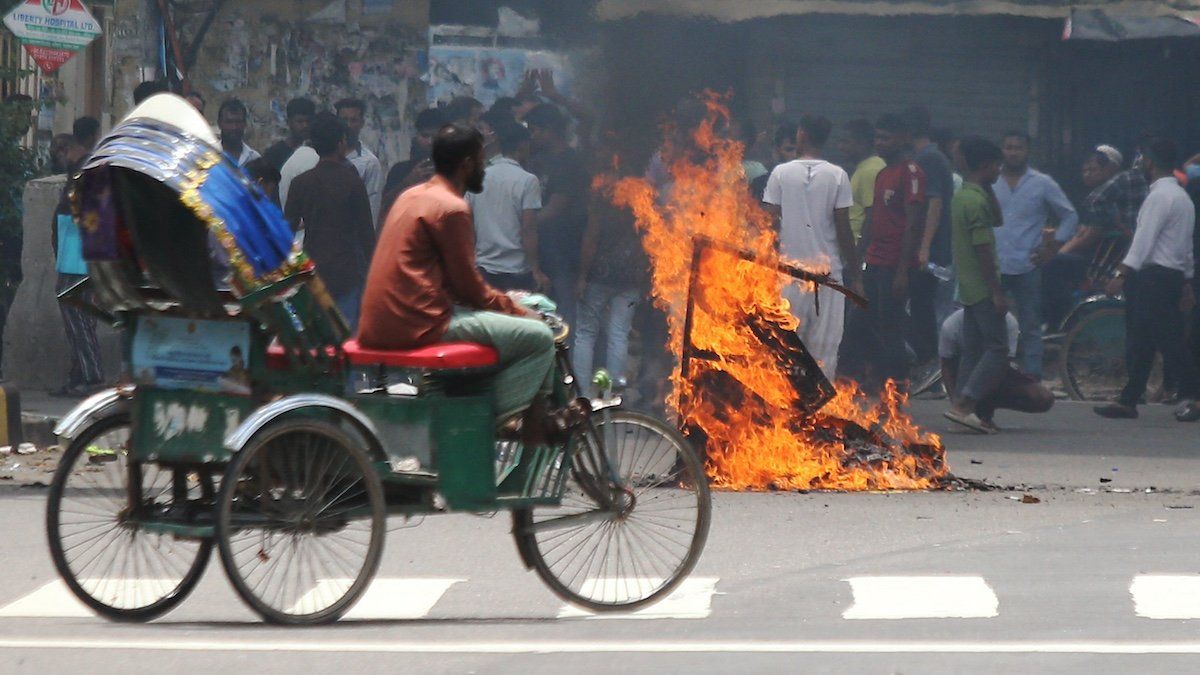At least 90 people, including 13 police officers, were killed Sunday in a major escalation of violent protests by groups demanding the resignation of Bangladeshi Prime Minister Sheikh Hasina, according to Al Jazeera.
The student-led unrest, sparked last month by the reinstatement of a civil service quota system that favors veterans of the 1971 independence war, has evolved into a broader anti-government movement. Asif Mahmud, coordinator for the Anti-Discrimination Student Movement, announced a Monday “March to Dhaka” to intensify pressure, stating, “We urge students and the public to lay siege to the city.”
The students are mobilizinga nationwide disobedience movement, calling on people not to pay taxes or any utility bills and to shut down all factories and public transport. In response, the government has imposedan “indefinite” nationwide curfew andcut internet service.
“Those who are protesting on the streets right now are not students, but terrorists who are out to destabilize the nation,” declared Hasina, following a national security meeting. She urged citizens to “suppress these terrorists with a strong hand.”
There have been over
200 deaths and 10,000 arrests over the last month, and the violence
shows no sign of abating. The protests pose the most serious challenge to date for Hasina, who was elected for a fourth consecutive term in a January vote boycotted by Bangladesh’s main opposition parties. She has been PM for 20 of the last 28 years — and we’re watching to see how much longer she lasts.
